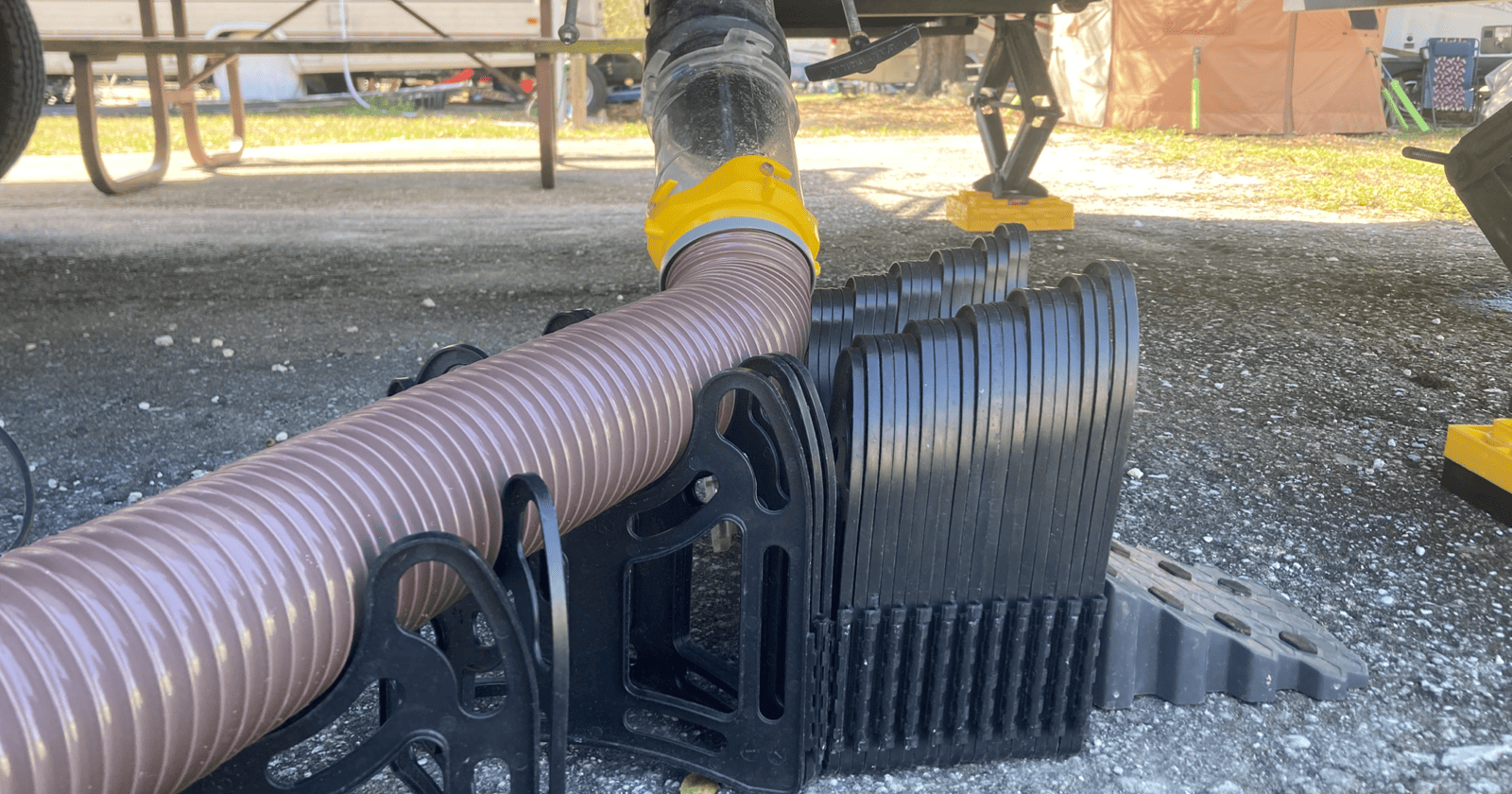RV ownership is on the rise. There are almost 10 million RVs on the road today. This has opened opportunities for people interested in opening their own RV park. Whether it’s a campground around a tourist destination or a long-term snowbird park, now is the time to think about developing your own campground.
There are many different things that are involved with building and maintaining your own campground. One of the first things you want to consider when trying to find the right piece of land is how many acres are needed for an RV park.
How Many Acres Are Needed for an RV Park?
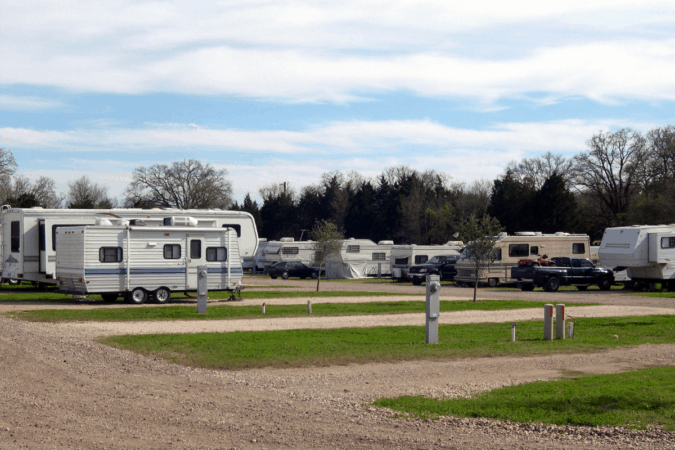
The required acreage needed for an RV park depends on a few different things. The first thing you have to consider is how many campsites will make you profitable. You have to assume that you may not become the number one campground in the country. What is the minimum you need to be filled regularly to keep you financially solvent?
Another issue is the municipality’s permit requirements. They may have a minimum requirement that must be met. Cañon City, a town in rural Colorado, requires a minimum of 3 acres of land for RV parks within their city limits.
Nye County in Nevada has a maximum requirement that an RV park cannot be more than 15 acres in size. There is legislation they are considering to reduce the size to 12 acres. You must be very aware of the municipality’s requirements and the possible changes they may be making.
If you plan on franchising with a major brand, their requirements can be higher. To franchise with KOA, the minimum acreage is at least 10 acres of land. Usually, you will find those franchise requirements exceed municipal permit requirements.
Private Versus Franchise
There are advantages and disadvantages on whether to go the franchise route or keep your park private. The advantage of franchising is that you are affiliated with a recognizable brand name. Part of the deal with them is that they will direct their customers to your campground.
Franchising also offers advantages like training managers, software, and other benefits that you do not have to figure out for yourself.
The disadvantage is that they have a fee schedule you must adhere to. Also, you may have to do things their way. They may have rules that require a bigger investment than you are prepared for. The brand may also have requirements that conflict with the municipality’s permit regulations.
For example, KOA requires their franchise owners to have a minimum of 70 to 90 campsites. That may be a problem if you do not have the necessary acreage to handle this requirement.
The Steele Family, who rebuilt a closed RV park decided to do it on their own. They had to learn the business on their own. After years of hard work, they have become one of the best campgrounds in Pennsylvania. For them, staying private gave them the freedom to develop their own way. Yet their journey to success was different than if they were to have franchised their RV park.
The Cost of Opening an RV Park
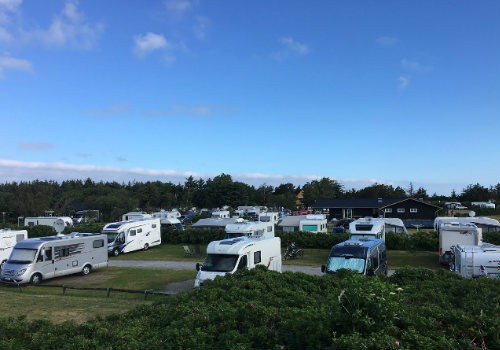
The average cost of a campsite can be anywhere from $15,000 to $50,000 a piece. This venture can add up into the $1-3 million range depending on your acreage size. This cost includes purchasing the land, municipal permits, improving the land with utilities, and other points of concern.
Belinda Lopez owns multiple RV parks in the State of Texas. Her advice to those who are looking to own their own park is to get friendly with the local lenders. Her perspective behind this has to do with the idea that the lender knows the area.
Local lenders want to promote business in their area. Besides lending, they can also connect you with groups in the area that can help promote your campground. Other lenders may offer a better rate, but the tradeoff could be increased business and marketing opportunities.
Municipal Permits for an RV Park
One of the biggest hurdles of opening an RV park is getting the proper permits from the city or county governing board. Getting in touch with the zoning board or township supervisor should be one of your first priorities. Their departments are the ones that issue the permits.
You will need to become familiar with all of their regulations concerning how your park is developed. They can have a very detailed list of requirements that must be met. Your building plans may have to go through the approval process with the municipality before your break ground.
Generally, if your RV park is near an urban area, you will run into a more strict development requirement than a rural area. With a developed business plan that covers all of their regulations, crossing the permit hurdle can be easier.
Many municipal regulations cover all types of issues. Here are some things to consider, not only to pass the permit requirements, but also to make your campground more appealing.
#1 – Number of Campsites per Acre
A general rule of thumb is to have 10 sites per acre. Some municipalities will limit the number of sites between 10-15. Many permit requirements give minimum measurements of how wide and how long each site should be.
When you decide how many sites to create, think about larger motorhomes and fifth wheels. They can be as long as 40 feet and have multiple slide-outs. You want to make sure there is enough room between the campsites to accommodate the length and widths of these coaches.
Your guests want to have enough space for their RV to enjoy the experience without feeling they are on top of each other. To add to the appeal, landscaping options or the ability to add fire pits could benefit your RV park.
#2 – Campsite Ground Conditions
You may have to provide proper parking surfaces on each lot. This could include having stones, asphalt, or cement pads that the RVs sit on. There are also requirements out there that say up to 80% of the campsite must be improved like this.
RVers always prefer flat, stable surfaces to park their coaches on. It helps with leveling the jacks. Many enjoy having a cement porch area that keeps the mud out of their camper as well.
#3 – Sewer
Sewer requirements could include connecting to the city sewer system or installing a big enough septic tank to handle a defined amount of waste. They could require one central dumping station, or allow sewer hook up on each site.
If you are given the option, RVers are willing to pay extra for a full hookup site that has water, electric and sewer. The extra effort to lay the sewer line could pay off.
#4 – Freshwater
Freshwater pipes will have requirements to handle proper pressure and follow health requirements.
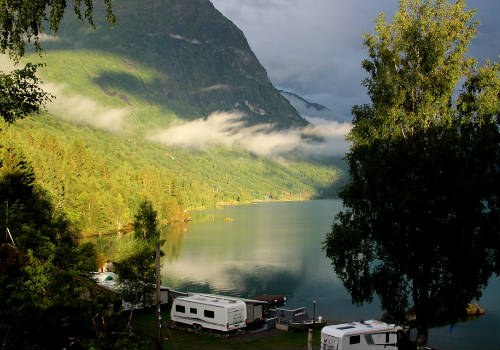
#5 – Electric
Electric wiring must meet certain amperage, volt, and watt standards. Permit regulations may require you to have both 30 and 50 amp service. To install this properly, you will want to consult a professional service to construct your electric grid.
Placement of the electric boxes is also a common discussion point in municipal regulations. They must be placed within certain areas of the campsite, have the proper breakers, and other details. RVers will have a big demand for electricity. Even though they are on vacation, they will want their mobile devices, TVs, and computers. You will want to make sure your electric service can handle all of this electrical usage.
#6 – Cable TV
If you decide to offer Cable TV, permitted requirements may be applied. Certain cabling and ports must be used.
There are companies you can contact to set up your cable throughout the RV park. They have the experience to make sure that you are in compliance with the municipal rules.
Over-the-air HD antennas still receive the signals of broadcast stations, but your guests would be happy to pay a little extra to receive the clear picture of cable. Your local cable company can work with you to design an affordable basic cable situation your guests will enjoy.
#7 – WiFi
Many campers are “cutting the cord” with traditional TV and internet connections. If they are not using a satellite dish, they are relying on cellular technology to access streaming services and the internet.
Like cable setups, there are companies that can create your WiFi network. They can make sure that your park is fully covered with enough bandwidth to handle the data from multiple users. Permit requirements may discuss hub placement and other details. Having WiFi may also benefit your business as well. Your guests are going to be taking pictures of their vacation and posting them on their social media pages. When your guests do this, they are promoting your campground as well.
#8 – Software and Accounting
There are many software packages out there that are designed specifically for all of your RV park needs. Programs like Civicrec can manage your reservations, rental contracts, facility rental, and accounting. Some of these programs can offer an e-commerce option where your guests can go online and reserve their campsite through your website. Having this convenience could make your operation that much easier.
#9 – Convenience Store and Other Permanent Structures
Permanent structures must follow both the permit and building codes. Some requirements can limit the number of structures based on their purpose. For example, one municipality allows for only one convenience store type facility. This could be your front office having a store in it for camping supplies.
Other structures like public restrooms and showers will need to meet certain health requirements. For additional appeal, you may want to pay attention to the interior design. Clean restrooms that look comfortable are a benefit that your guests will enjoy.
Finding the Right Land
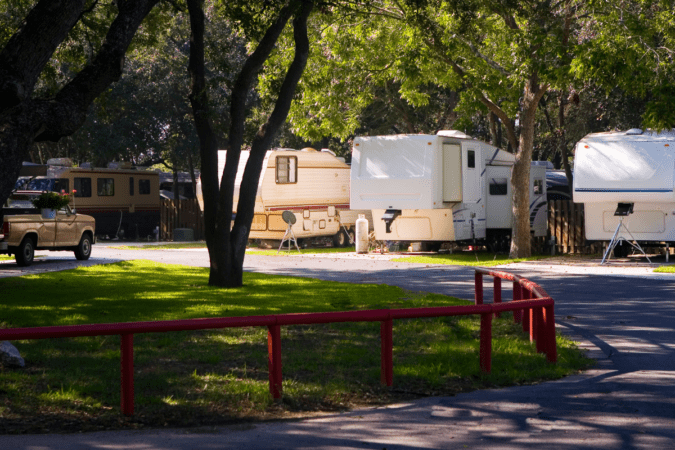
Finding the right piece of property has become easier to find. Many sellers post their land and developed RV parks on a number of websites. Some include Loop Net, RV Park Store, and Parks and Places. On these websites, you can find costs, the number of campsites, and other amenities of the location.
When looking for your perfect property, look at the access roads to the land. You want to make sure that your guests can easily access your RV park. Full paved roads that are close to the highway or main streets are more appealing.
Marketing
In this age of the internet, social media has become the best way to promote your RV Park. Some owners have worked with companies that can make literature to hand out at RV shows and other events.
If you go the franchise route, the company will do a lot of the marketing for you.
Another thing to consider is if your campground is not near a tourist attraction, have space to hold your own special events. Family reunions, holiday festivities, and appealing to various groups like the Boy Scouts can build your appeal for potential campers.


